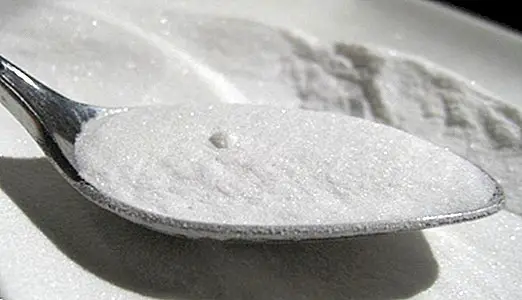Vegetable proteins: benefits and where to find them
The proteins they are macromolecules composed mainly of hydrogen, oxygen, nitrogen and carbon, although the great majority also contain phosphorus and sulfur, being formed by the union of several amino acids by peptides.
They become essential nutrients for the proper functioning of our body, as they actively participate in a wide variety of functions, among which we can highlight: they act as a natural defense of our body, are essential for development and growth, provide amino acids fundamental for tissue synthesis, and are essential for the formation of hormones, vitamins and enzymes, hemoglobin and digestive juices.
Depending on their origin they are classified in animal proteins and in vegetable proteins. The latter become one of the healthiest, providing a greater biological value (which in turn depends on the essential amino acids they contain). Hence, they are also considered as high biological value proteins.
Benefits of vegetable proteins
The vegetable proteins that we find above all in legumes, cereals and nuts become the most complete, in addition to the healthier than those of animal origin, thanks to have less fat and therefore with less cholesterol, being very rich in vitamins and minerals.

In addition, it highlights its high fiber content, which as you surely know, helps prevent constipation by helping us enjoy a good intestinal transit. This fiber content is essential to help us also to make a good digestion, hence Vegetable proteins are much easier to digest than the animals.
They also contain a wide variety of antioxidants, useful to fight against the harmful effects of free radicals.
Foods rich in vegetable proteins, where to find them?
As we have seen, the proteins they are fundamental and indispensable nutrients for the correct functioning of our organism. Not in vain, we could almost say that the proteins They are the most important components of our body.
We find them in all the cells of our body and participate in the formation of our organs, among others.
But it is necessary to know how many proteins we can consume per day, given that an excess of proteins can be very harmful to our health.
Since we can find them in a wide variety of foods, there is no doubt that within the different proteins existing (between plant proteins and animals), vegetable proteins become one of the healthiest and healthiest, providing a greater biological value (which in turn depends on the essential amino acids they contain).
Next we expose you the foods where to find vegetable proteins.
The vegetables they become one of the foods richest in vegetable proteins. Although, yes, this does not mean that they become a substitute for the flesh. It emphasizes especially the soy, one of the most important sources, on which we will speak next.
Soy
There is no doubt that it is one of the foods that stands out, precisely because it is one of the sources with greater contribution in vegetable proteins. Specifically, 100 grams of soy contribute around 37 grams of protein. Quality or advantage that is added, in addition, to its low saturated fat content.

Nowadays it is possible to easily find soy products in herbalists and diet stores, in different ways. For example, we can choose the tofu(popularly considered as theTofu), the tempeh or even in the form of hamburgers or sausages.
Seitan
The seitan is another food tremendously popular among vegans and vegetarians, mainly for its high protein intake. For this reason it is usually known asvegetable meat, since it contains a percentage quite similar to the proteins that meat possesses.

For example, 100 grams of seitan provide around 20 grams of protein. And, unlike meat of animal origin, it practically does not contribute cholesterol or saturated fats.
Quinoa
Have you ever heard of the quinoa? It is considered a pseudocereal, since its nutritional composition is quite similar to that of a cereal in itself, but it is not really a cereal.

In fact, thanks to its incredible nutritional content (high content of amino acids, vitamins, carbohydrates and minerals), some people consider it a true "superfood".
In fact, regarding your contribution to vegetable proteins, did you know that 100 grams of quinoa provide 18 grams of protein?
Vegetables
Although its contribution in vegetable proteins depends on each group, the truth is that we could not forget in this note of the delicious vegetables, which stand out precisely for being an excellent source of vegetable proteins.

It is evident that, within this group, we are at the soy (already mentioned above), although we can also name the beans or beans, lentils and chickpeas, among others. Specifically, 100 grams of beans or lentils can provide around 20 grams of protein. This article is published for informational purposes only. You can not and should not replace the consultation with a Nutritionist. We advise you to consult your trusted Nutritionist.


